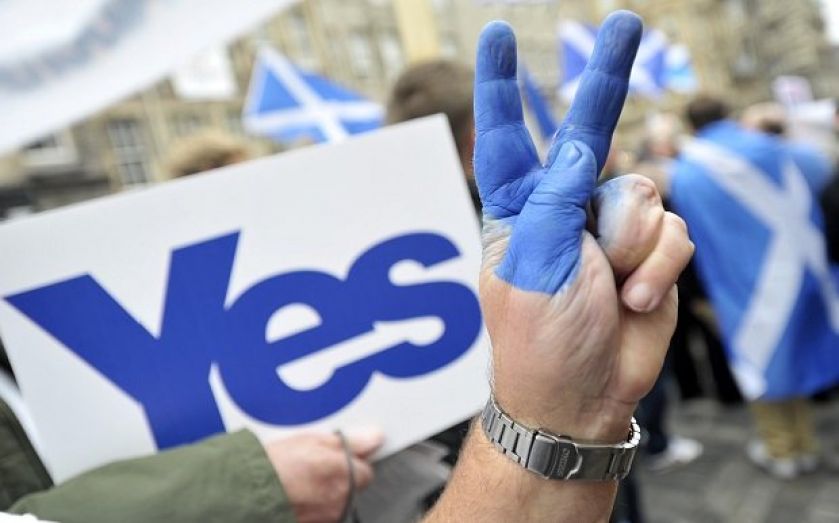Scottish independence: Why the more you know, the more likely you are to vote yes

Markets, politicians and the public are still taking in the shock of the first poll showing the Yes campaign ahead for the first time in the race for Scottish independence.
A Sunday Times YouGov poll this weekend found 51 per cent are planning to vote in favour of independence and 49 per cent are planning to vote to stay in the Union.
The Better Together campaign may have taken some comfort from the fact the YouGov poll excluded undecided voters, who usually break in favour of the status quo.
However, according to new research from the Behavioural Laboratory at the University of Edinburgh, undecideds may be the key to Alex Salmond's victory, rather than his downfall. The research shows when undecided voters are presented with more information about the referendum, support for independence rises by between 10 and 15 per cent.
Before the experiment, 70 per cent of the 300 subjects said they were undecided or were open to changing their minds. After the experiment, indecision among voters halved.
The group was split into two and given eight articles in favour of independence and eight against. The sources included news articles, academic reports and policy documents. The subjects were only permitted to read eight articles. Some were allowed to read whichever articles they chose while others were made to read four on either side.
The only group whose chance of voting no increased in the experiment were those who were allowed to read material only they chose. Even so, the shift to a no vote only occurred in a few cases.
Researcher Davide Morisi from the Department of Political and Social Sciences at the EUI in Florence said: “Since independence is related to more uncertainty than keeping the status quo, reading convincing arguments has a stronger effect on a Yes vote because it contributes to reducing these uncertainties to an ‘acceptable’ level.”
One month ago, YouGov had the No campaign on 55 per cent and the Yes on 35 per cent. Support for independence has been on the rise since Alex Salmond's victory in the second debate and the SNP's renewed focus on public services as a key reason for independence. However there may be other factors at work.
Robert Wood, chief UK economist at Berenberg, said:
One reason why the YouGov polls have tightened seems to be a willingness among voters to either take a risk or to believe Alex Salmond’s argument that Westminster is bluffing about a currency union.